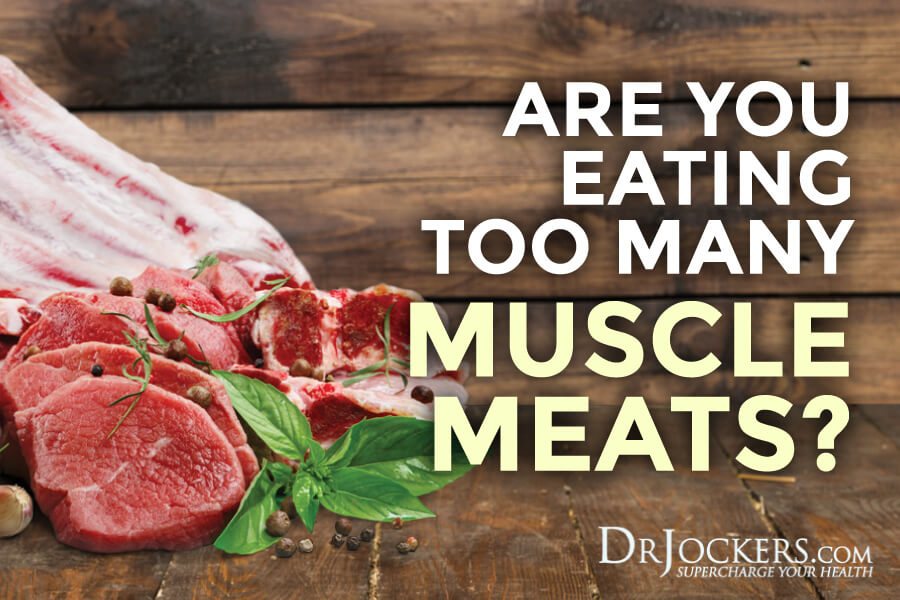
Are You Eating Too Many Muscle Meats?
Our modern society has emphasized the use of lean, muscular portions of meat and poultry. Our ancestral cultures traditionally favored the fatty regions, organ meats, bones, and the rich bone marrow inside as an invaluable source of nutrition. Is it possible that we have developed many common health problems, in part, due to an imbalance of lean muscle meats over fatty, gelatinous regions that our ancestors consumed so much of?
In Westernized countries, lean meats are used exclusively and most of the stock bones and organ meats are discarded or used as pet food. The general thought is that lean muscle meats are cleaner, healthier and safer for consumption. Nutritional research has now indicated that consuming the whole animal including the muscle meats, organ meats and bone broth provides the nutritional synergy for optimal health (1, 2).
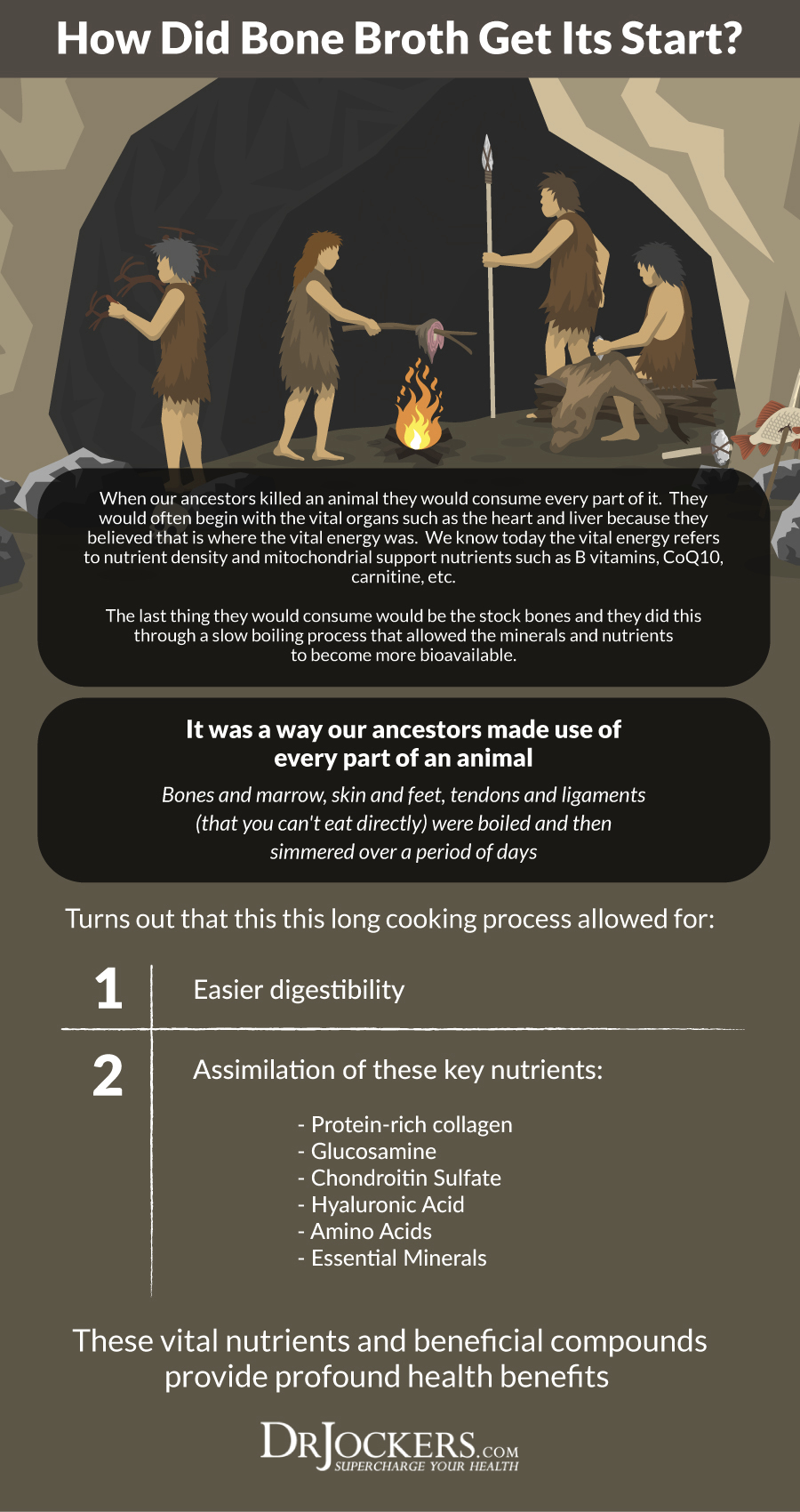
What Did Our Ancestors Do?
Our ancestors were hunter/gatherers and the best to understand their diet is to study modern day aboriginal cultures. These people are hunters and when they slaughter a wild animal they make use of every part of it. They use the meat, the skin, and the bones to make stock. Perhaps the most prized regions of the animal are the major organs such as the liver, heart, and brain (3, 4).
In many aboriginal cultures, the alpha male will immediately pull out the heart or the liver of the freshly killed animal and consume it raw. These tribes believe there is a vital energy within these organs that gives them greater strength, endurance, and power.
Our ancestors also ate the bones and cartilaginous components which provided a tremendous amount of collagen proteins that help the skin, bones, hair, nails, and gut lining. Connective tissue is typically discarded in our western society but was a core component for hunter gatherers.
Our ancestors were consuming wild animals that were eating fresh pasture and a genetically congruent diet. For cattle, this would mean 100% grass and pasture while the poultry and wild turkeys and other animals were consuming bugs, insects, as well as herbs and grass. Processed meat from industrialized farms was not a part of our ancestoral diet and should never be purchased or consumed and does not have a place in this conversation.
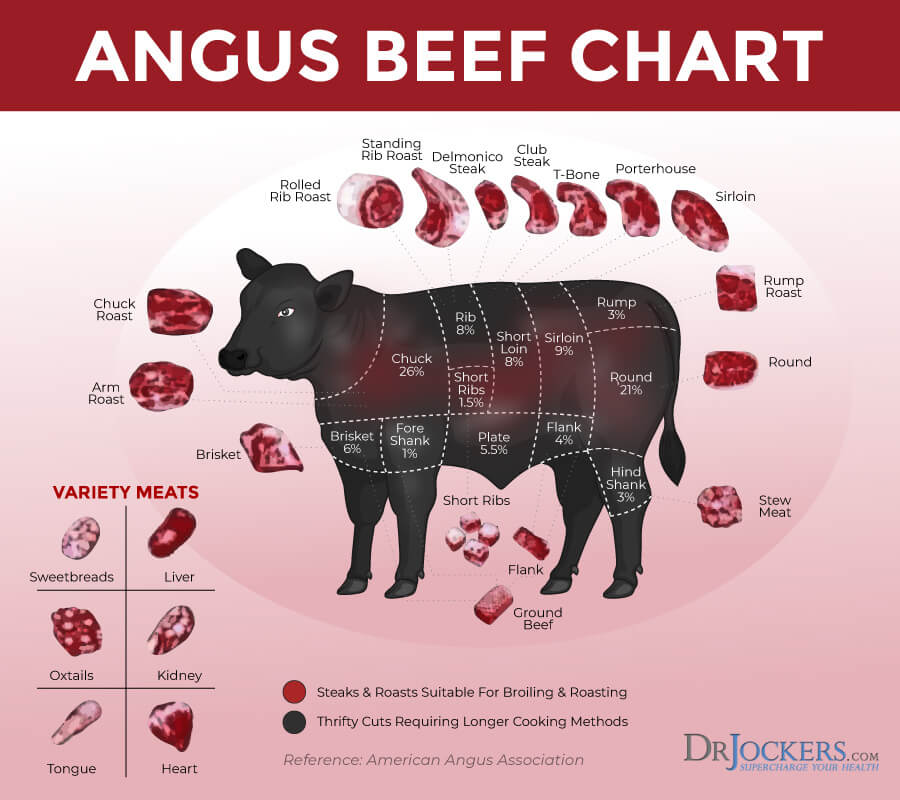
The Nutritional Value of Muscle Meats
Lean muscle meats are rich in protein, zinc, vitamin B12, iron, and choline. Protein is a very important compound in physiology and is vital to life. Animal meat is one of the best sources of complete protein with a full array of amino acids. The amino acid makeup of muscle meats is very high in tryptophan and methionine and very low in glycine (5).
Organ meats and bone broth protein are the opposite in that they are high in glycine but low in methionine. A diet high in muscle meats, but low in bone broth and organ meats will cause an improper methionine to glycine ratio. This imbalance depletes the body of B vitamins and trace minerals.
High methionine and tryptophan can interfere with B6 absorption and drain the body of its reserves of other key methylating agents such as riboflavin (B2), folate, zinc, and B12. This can lead to an increase in inflammation, altered genetic experession and poor detoxification.
Methionine is a precurser to homocysteine and the more methionine we get in our diet, the more homocysteine our body would have the ability to produce (6). Homocysteine is an inflammatory protein that is associated with cardiovascular disease, stroke and diabetes when it’s levels are above 6.3 umol/L (7).
The Amino Acid Imbalances:
Let’s do a quick run through on the amino acid imbalances involved with eating a diet high in muscle meats and low in cartilaginous regions of animals. These imbalances have negative health consequences associated with them.
Elevated Methionine: Glycine ratio
Glycine is very important for phase II liver detoxification. Excessive An elevated methionine: glycine ratio can lead to elevated homocysteine levels and poor liver detoxification. Glycine is also an anti-inflammatory compound so low levels would increase whole body inflammation (9).
Glycine also binds to glycine receptors in the spinal cord where it calms down the nervous system and reduces anxiety, irritability, and insomnia (10).
Elevated Tryptophan: Glycine ratio
Chronically elevated tryptophan to glycine ratios can cause an overproduction of serotonin and melatonin after eating. This can lead to drowsiness and fatigue. It can also cause agitation and restlessness as well as heart arrhythmias (11).
Incorporating the gelatinous regions of the body, including bone broth, skin, tendons, ligaments, discs, and bone marrow as well as organ meats helps provide nutrient balance and synergy.
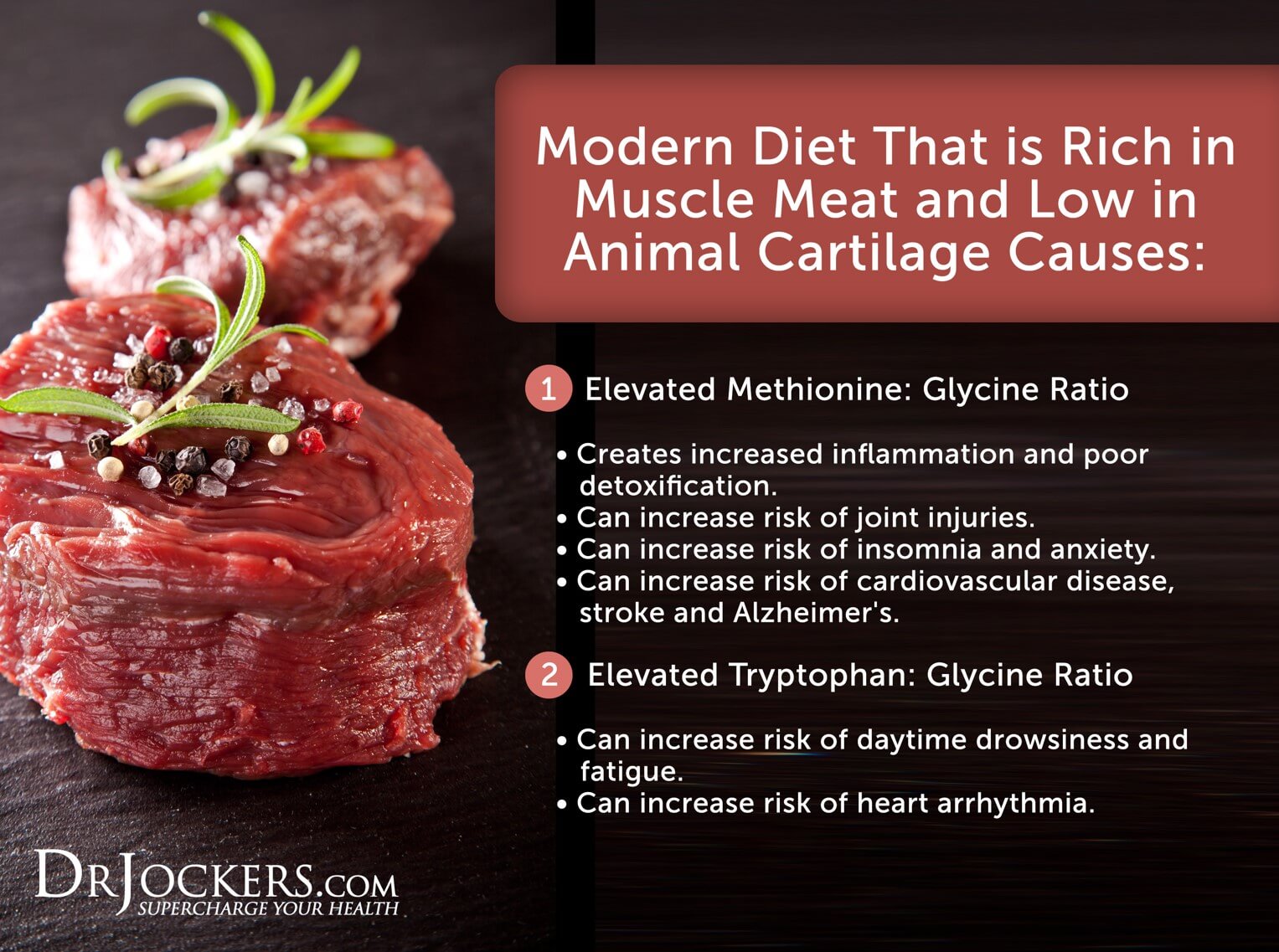
Why We Should All Consume Bone Broth:
Our ancestors would take the stock bones and simmer them over a fire to create a healing elixir we call bone broth. Almost every living culture has a number of traditional recipes using bone broth and the medicine men used it to help people suffering from a wide variety of health complaints.
Today, bone broth is one of the most popular trends in the healthy living community. This is because bone broth is full of healing nutrients that are hard to find elsewhere. There are many commercial bone broths available. Premade bone broth comes in both liquid and powdered forms. My favorite brand of liquid premade bone broth is Kettle & Fire (here) which I have found to be the very best on the market. Use the coupon code JOCKERS at checkout to save 15%.
The reasons why I love Kettle and Fire is that they only use 100% organic and grass-fed animal bones for their broths. This is especially important as these animals are not exposed to pesticides and herbicides and do not bio accumulate a high toxin load. Additionally, Kettle and Fire use a slow simmering process to extract the maximum amount of minerals and collagen from the bones.
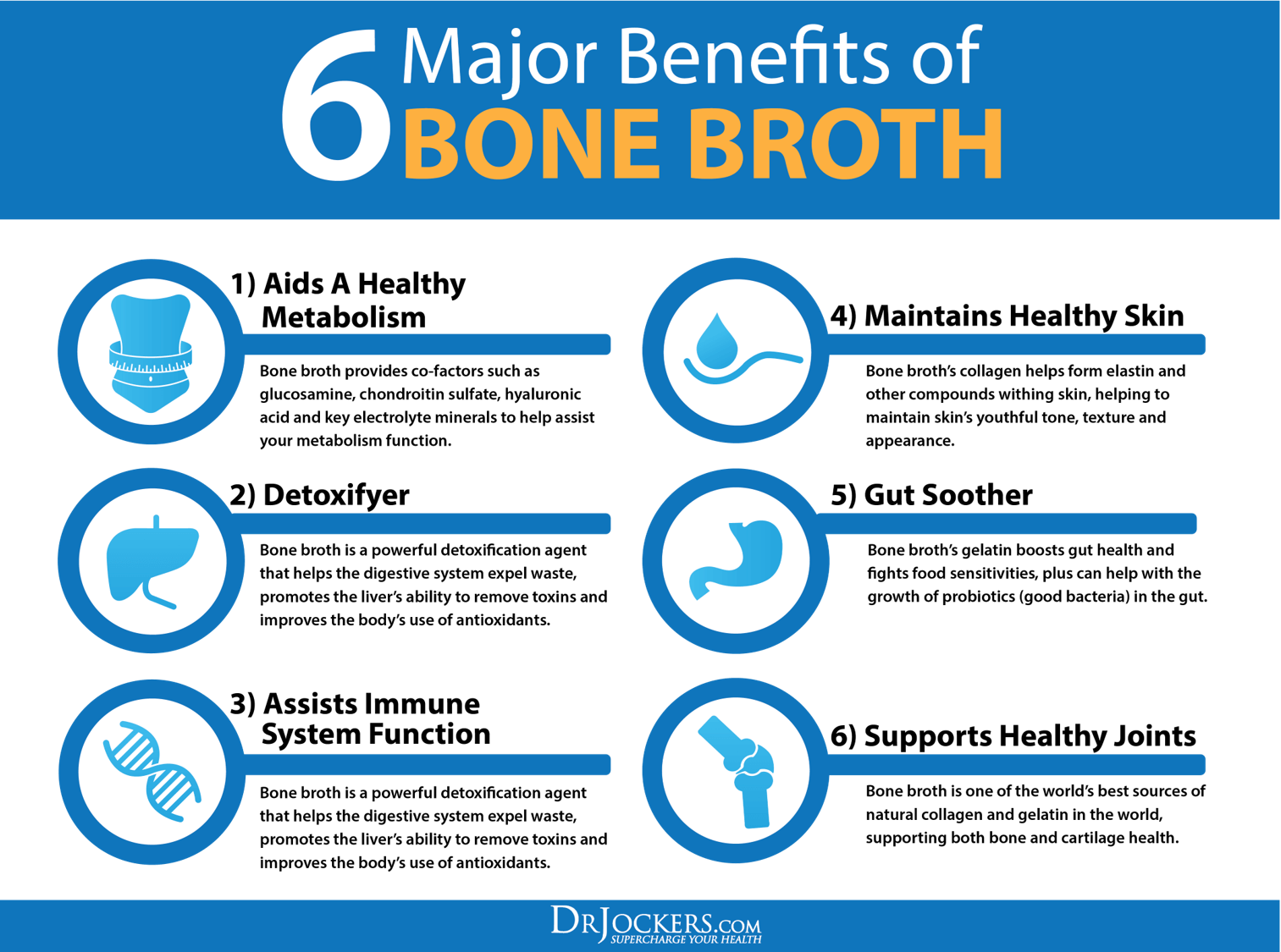
Health Benefits of Bone Broth:
Bone broth is the world’s best source of gelatin and collagen protein. Research has found that collagen protein found within gelatin strengthens the gut lining, reduces food sensitivities, and effectively supports the integrity of the intestinal membrane (12).
Collagen is rich in the amino acids proline, glutamine, and arginine which help to heal tears in the intestinal lining and support a strong gut lining. Bone broth is rich in sulfur, selenium, and glycine which help with phase II liver detoxification
Bone broth is a great mineral source and contains a good amount of potassium, calcium, and magnesium for healthy bones and blood pressure. Collagen protein is the same protein used to make our joints and our skin. Using gelatin and collagen is one of the best ways to keep your joints and skin young and healthy.
The product I use with my clients to get these key amino acids balanced is called Bone Broth protein. It is MUCH EASIER to use than making your own bone broth and it comes in 2 flavors; vanilla and chocolate. You can use these in shakes and make tasty smoothies.
Why You Should Eat More Organ Meats:
Organ meats and bone broth provide the necessary glycine to balance out the methionine and tryptophan from the muscle meats. This creates a nutritional synergy with all the appropriate amino acids. Organ meats are much richer in saturated fat, cholesterol, and essential fats which are vital to healthy hormones, nervous system function, and immunity.
Organ meats are concentrated multivitamins with tremendous amounts of critical B vitamins such as B12, selenium, choline, zinc, omega-3 fatty acids, CoQ10, and carotenoid anti-oxidants. These are extremely valuable nutrients that modulate immunity, produce cellular energy, and neutralize harmful compounds in the body. These regions also contain a lot of valuable collagen, elastin, and gelatin, which are extremely valuable for healthy joints, gut lining, connective tissue, skin, and hair.
Organ meats are particularly rich in purines which are nitrogen rich DNA & RNA materials. These are some of the most valuable nutrients because they provide the raw materials for healthy genetic material. These meats also contain fat-soluble nutrient activators in vitamins A, D & K2. These nutrients help the body utilize minerals more effectively and play an important role in immune modulation.
Using Organ Meats as Medicine:
The Native Americans, other tribal groups, and the original healers believed that eating the organs from a healthy animal would improve the health of the organs of the individual. One way to treat an individual with a weak heart was to eat the heart of a healthy animal. Eating the brains of an animal was said to promote clear thinking and improved memory. People with digestive problems ate the stomach and intestines and those with kidney problems ate animal kidneys.
If you had vision problems you ate the eyes of the wild animal and thyroid problems were addressed with fresh thyroid meat. There are a tremendous amount of recipes in many cultures to dress up the lungs, intestines, liver, heart, brains, eyes, testicles, and other potent organs to make them more palatable.
Dr Jockers Recommendations:
I would recommend using organ meats and/or stock bones at least 1-2 meals per week to get the valuable nutrients these foods contain. You can rotate organ meats such as tongue, liver, kidney, heart, eyes, brain, etc. or just consume your favorites routinely. You can also buy a whole chicken or turkey and use all the meat including the organs, bones, etc.
Another great way to get these benefits is by buying your fish with the spine and organs still inside. This way you can consume the fish head with brains, eyes, etc. You can consume the meat around the skeleton, etc. Oftentimes, small fish such as sardines or herring will be packed whole and you will have a complete amino acid balance consuming those.
You should also use nutrient rich pasture-fed eggs for at least 2 meals per week as these contain many of the same nutrients that organ meats contain. If you have a sensitivity to eggs then focus on the organ meats and bone broth to get these key nutrient ratios. You can get many of these amazing organ meats and many other fantastic animal foods through US Wellness Meats here.
If You Do Not Want Organ Meats:
Most of my clients do not have the time or a strong enough desire to make their own bone broth and consume organ meats on a regular basis. If you do, then I am a HUGE ADVOCATE of doing so. It will make a big difference in your health.
To be honest, when I was single I used to look to incorporate some grass-fed liver into my meals on a more regular basis. These days, my wife and kids won’t have that, so I don’t end up getting the organ meats from food. I do drink bone broth and use bone broth collagen protein nearly every day so I get the high quality collagen.
The other supplement I started using is called Organ Complex from Paleo Valley and it’s 100% grass-fed, non-GMO, gluten-free, and full of powerful nutrients that I can feel!! This is one of my daily supplements that really makes a difference in my energy and productivity. I invite you to check it out here
If you want to work with a functional health coach, I recommend this article with tips on how to find a great coach. We do offer long-distance functional health coaching programs with our world class team of health coaches. For further support with your health goals, just reach out and our fantastic coaches are here to support your journey.

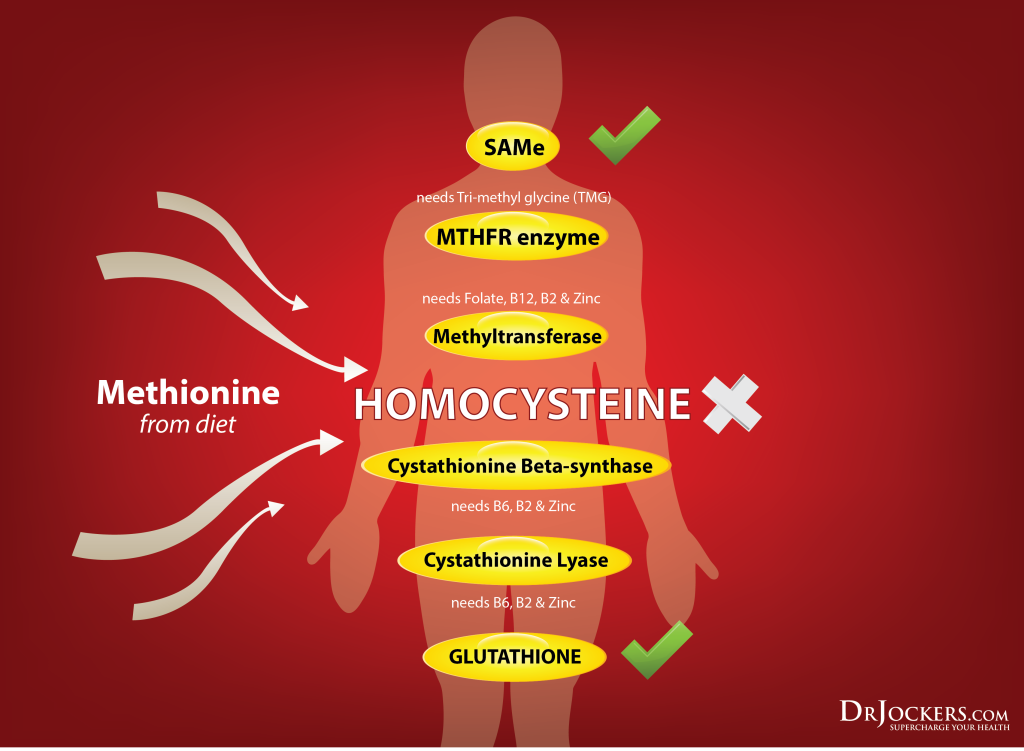
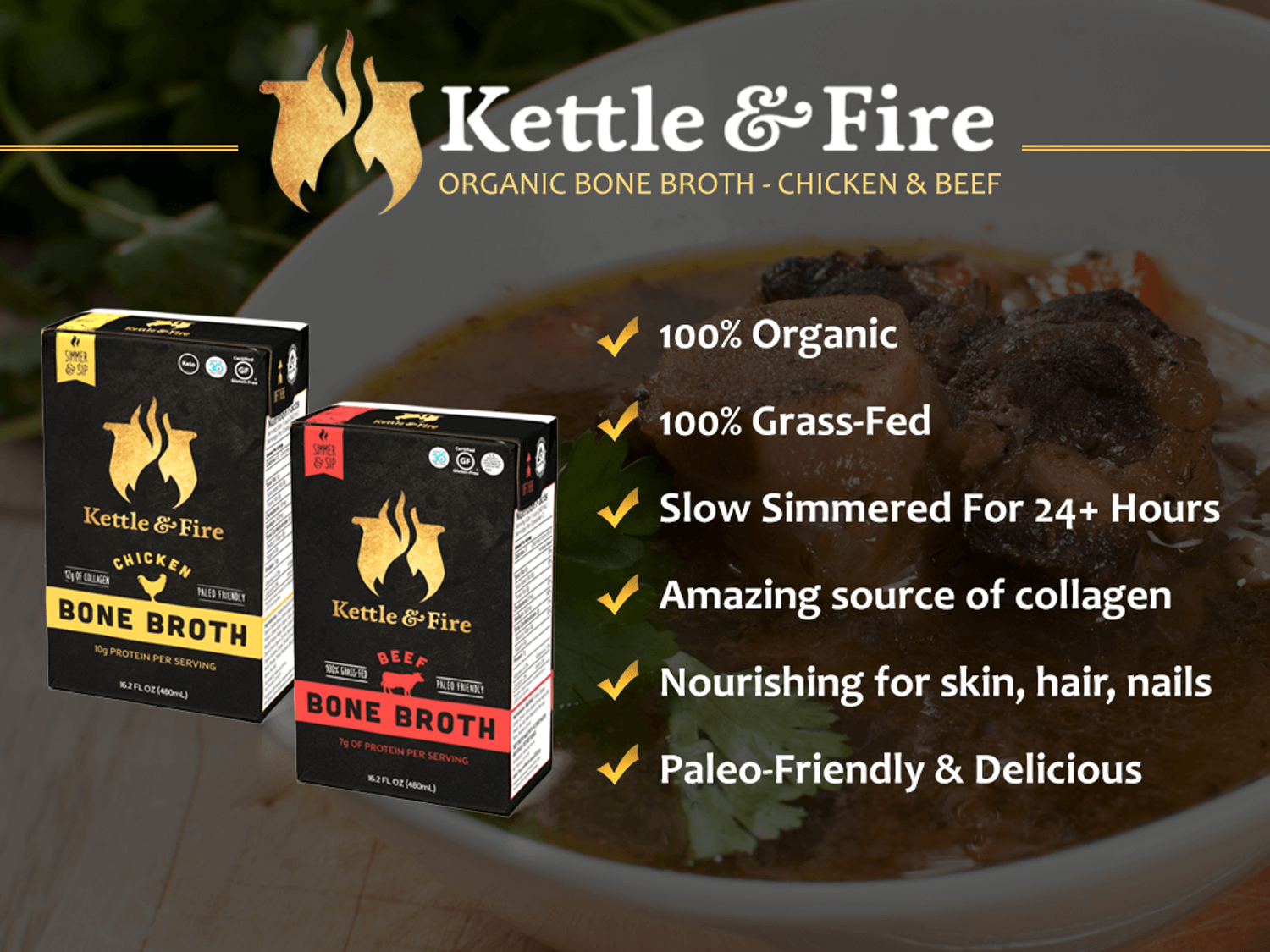

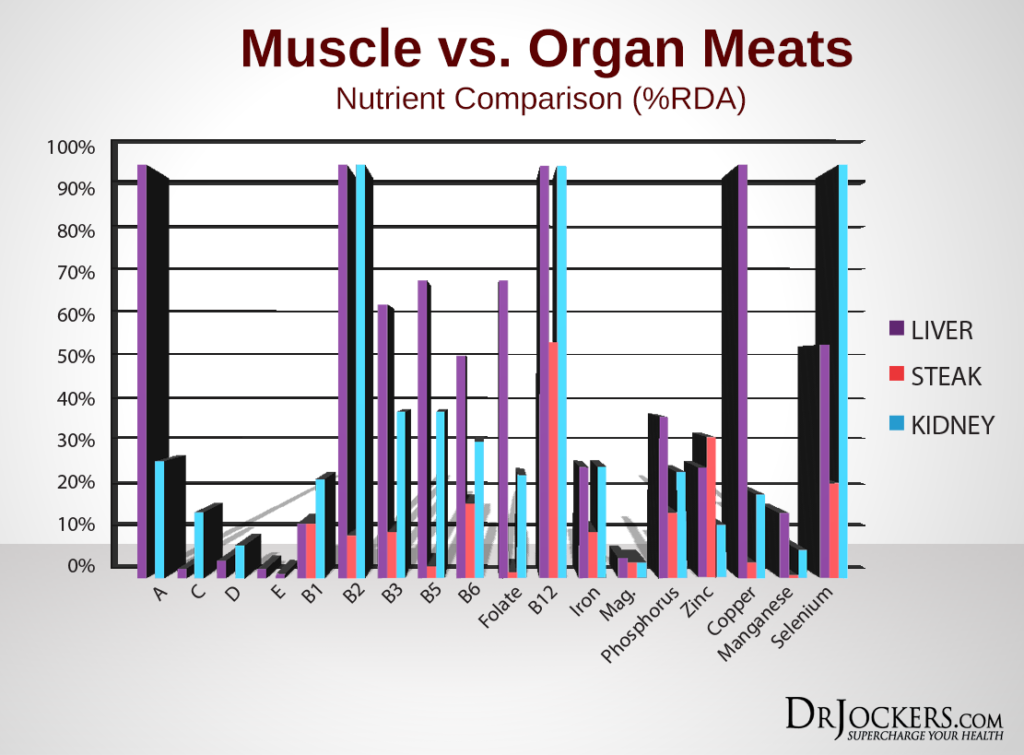
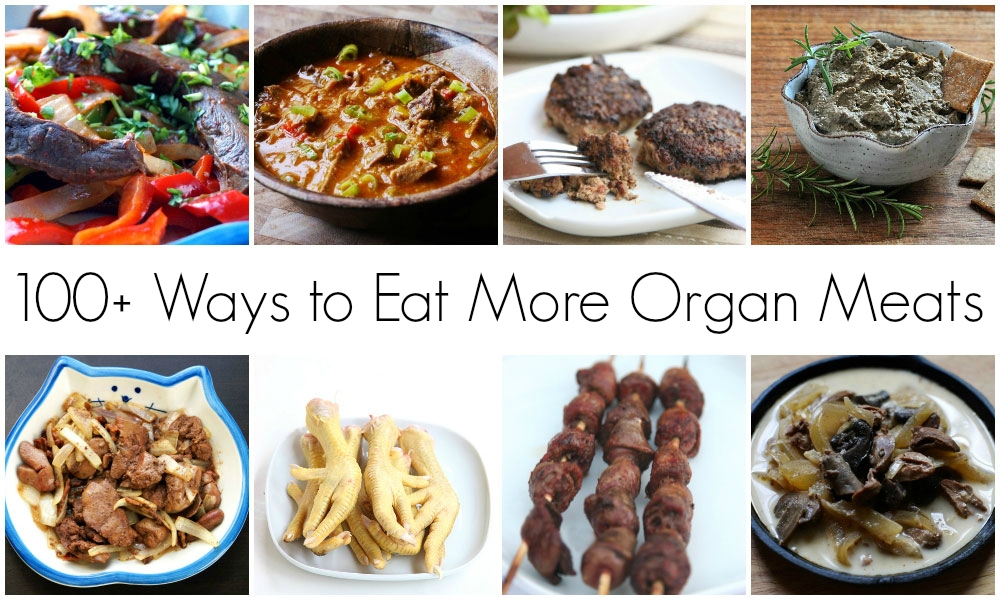

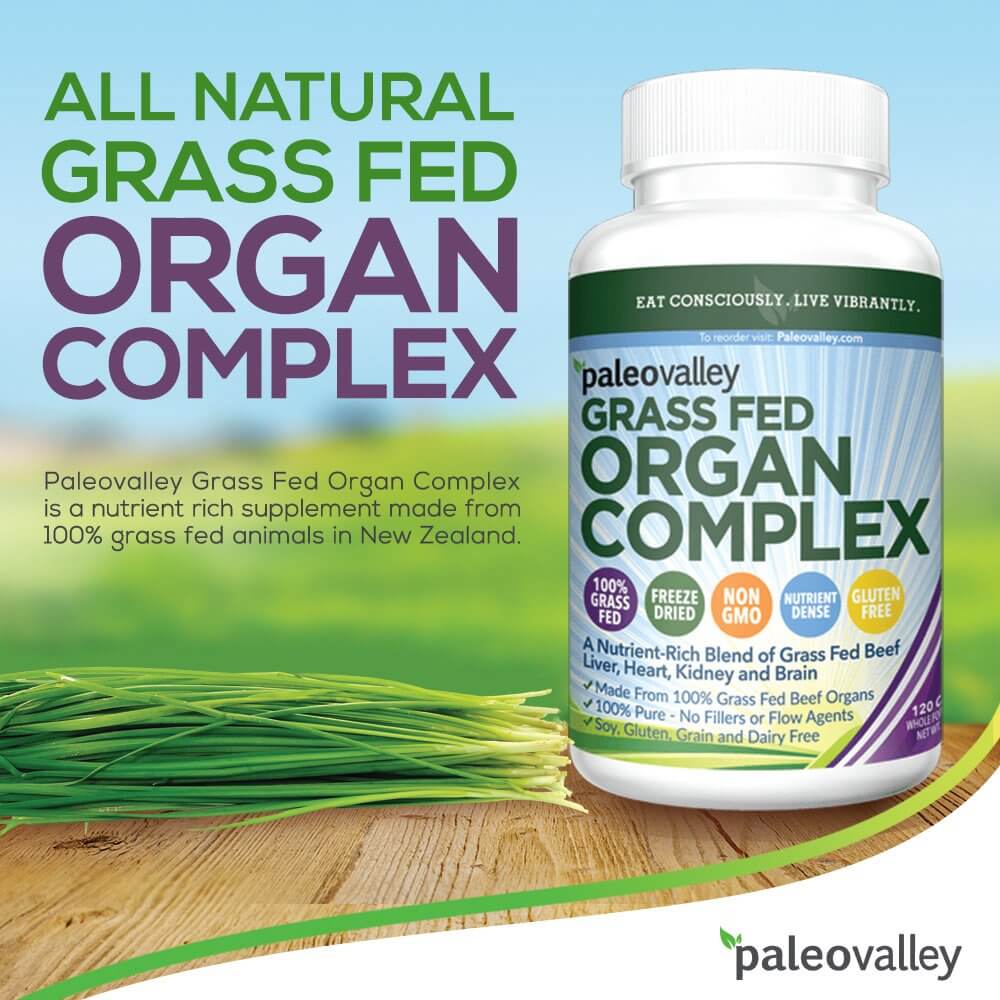



Great info very informative
Thank you Ron!